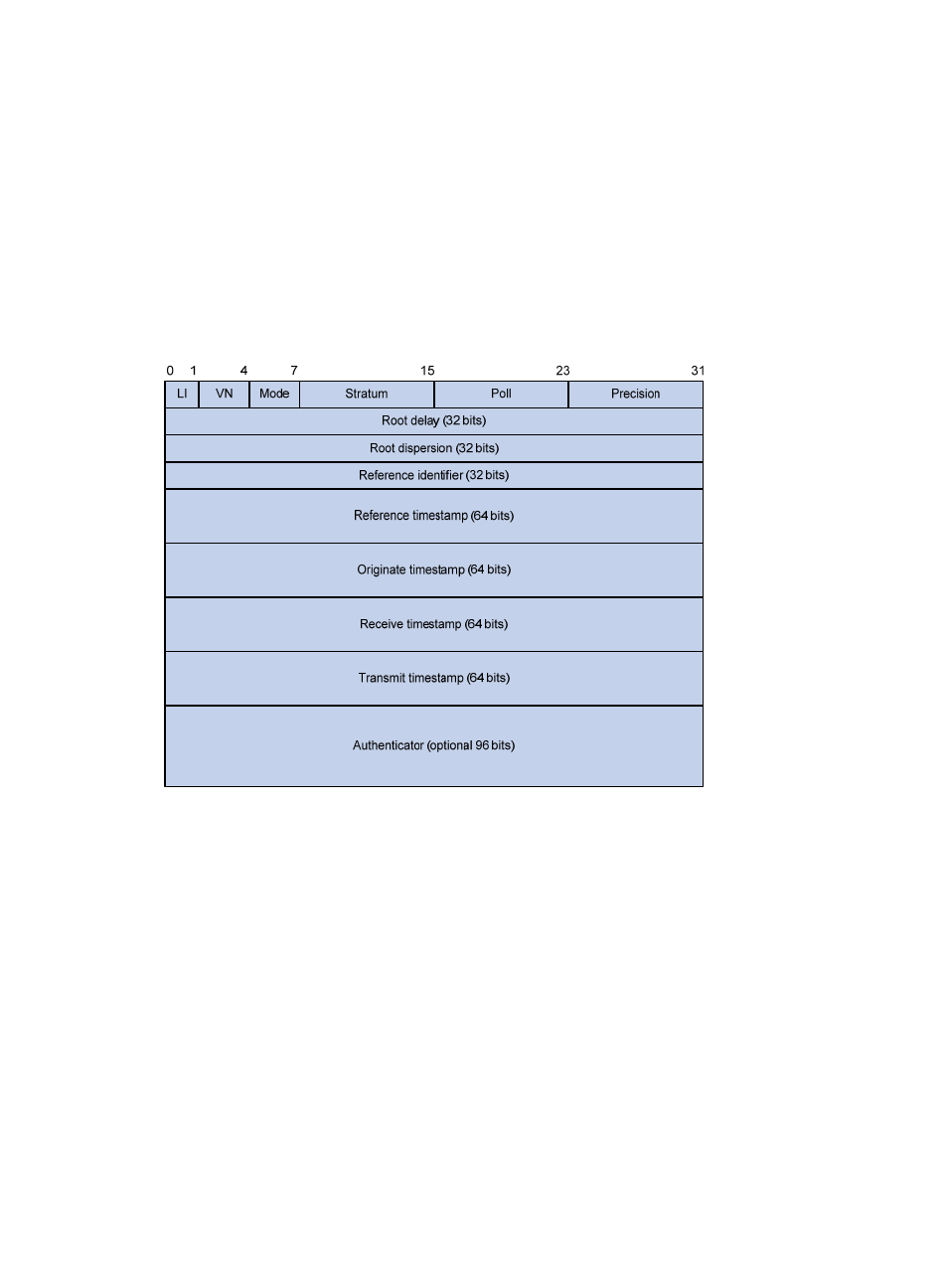Ntp message format – H3C Technologies H3C SecPath F1000-E User Manual
Page 111

100
This is only a rough description for the NTP work mechanism. For more information, see RFC 1305.
NTP message format
NTP uses two types of messages, clock synchronization message and NTP control message. An NTP
control message is used in environments where network management is needed. Because it is not a must
for clock synchronization, it is not described in this document.
All NTP messages mentioned in this document refer to NTP clock synchronization messages.
A clock synchronization message is encapsulated in a UDP message, in the format shown in
.
Figure 44 Clock synchronization message format
Main fields are described as follows:
•
LI—A 2-bit leap indicator. When set to 11, it warns of an alarm condition (clock unsynchronized).
When set to any other value, it is not to be processed by NTP.
•
VN—A 3-bit version number, indicating the NTP version. The latest version is version 4.
•
Mode—A 3-bit code that indicates the NTP operation mode. This field can be set to these values:
{
0—reserved
{
1—symmetric active
{
2—symmetric passive
{
3—client
{
4—server
{
5—broadcast or multicast
{
6—NTP control message
{
7—reserved for private use.
- H3C SecPath F5000-A5 Firewall H3C SecPath F1000-A-EI H3C SecPath F1000-E-SI H3C SecPath F1000-S-AI H3C SecPath F5000-S Firewall H3C SecPath F5000-C Firewall H3C SecPath F100-C-SI H3C SecPath F1000-C-SI H3C SecPath F100-A-SI H3C SecBlade FW Cards H3C SecBlade FW Enhanced Cards H3C SecPath U200-A U200-M U200-S H3C SecPath U200-CA U200-CM U200-CS
